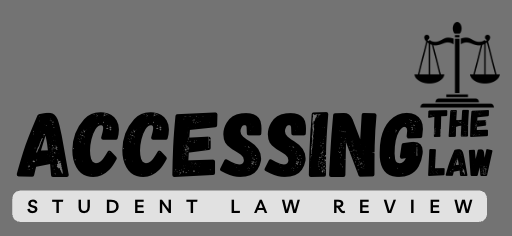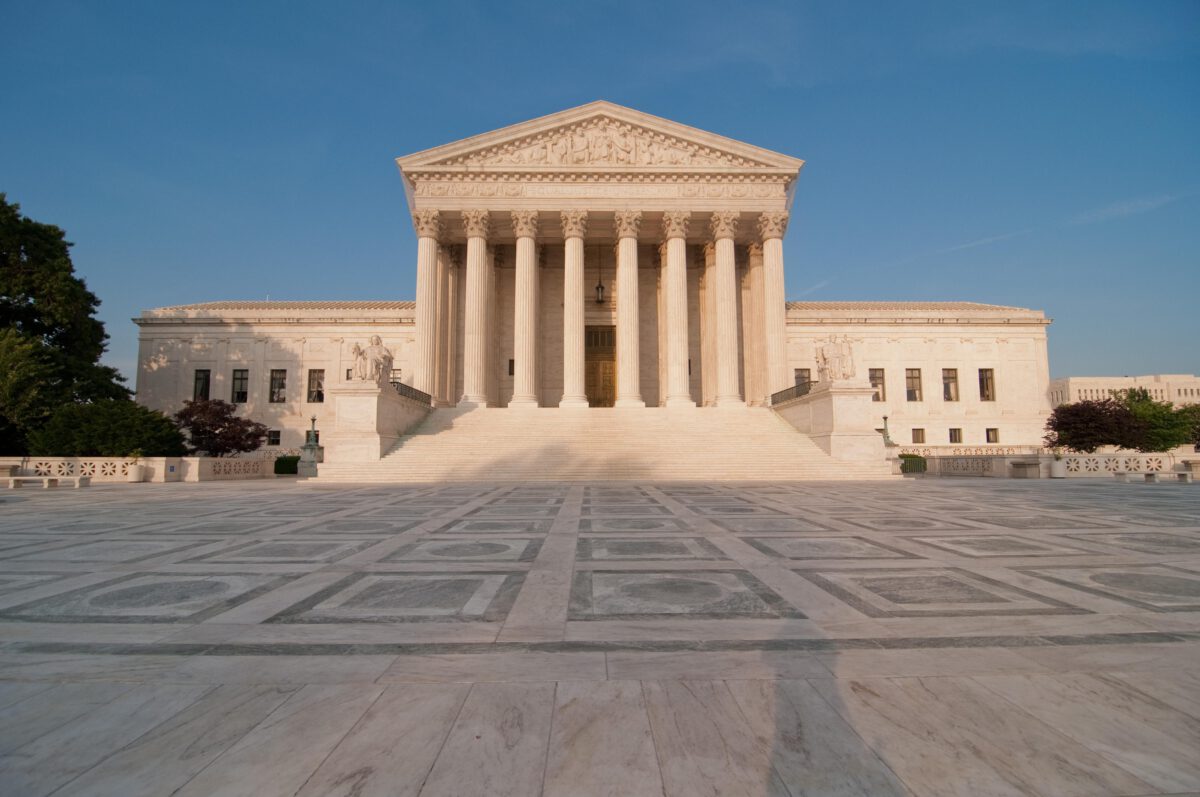Constitutional Law: Moore Money, Moore Problems: A Legal Analysis of the Supreme Court Tax Law Decision - Moore v. United States (2024)
Written by Rowen Hamilton, Cole Frey, DaShaun Cannon Brown, Munpreet Kaur
Edited by Rowen Hamilton and Anna Ramesh
Background and Overview
The plaintiffs in Moore in Moore v. United States (2024) are two United States business owners, Charles and Kathleen Moore, who had investments in an American-controlled foreign corporation known as KisanKraft. For eleven years, KisanKraft created a steady stream of income, but the income was not distributed to its American shareholders. Despite this, the Moores were taxed $14,729 for their non-realized income because of their share in KisanKraft. Responding to this tax, they brought a lawsuit against the US claiming that the Mandatory Repatriation Tax (MRT) violated the Direct Tax Clause of the United States Constitution.
The majority opinion of the Court, delivered by Justice Kavanaugh, asserts that Congress has the authority to treat corporations and their shareholders as pass-throughs; The majority found that Congress is not targeting their taxes wholly on their income, but instead weighs the undistributed income and taxes based off their shareholder claim in the corporations. The Court ruled against Moore, reaffirming that Congress has the decision-making authority to maintain the Mandatory Repatriation Tax. However, the decision also raises questions as to whether a further wealth tax would be Constitutional.
Precedent
Federalist 30 - outlines how the Constitution was necessary because the Articles of Confederation were
insufficiently powerful to collect taxes during times of conflict.
Brushaber v. Union Pacific R. Co. (1916), Springer v. United States (1881), and National Federation of Independent
Business v. Sebelius (2012) - created a distinction between direct taxes—those imposed on people and property—and indirect taxes—those imposed on activities and transactions.
United States v. Ptasynski (1983) - required that indirect taxes have the same relative impact to each state.
Pollock v. Farmers' Loan & Trust Co. (1895) - found that taxes on income generated from property equated to a tax
on the property, so it had to be apportioned among the states.
Helvering v. Independent Life Ins. Co. (1934) - upheld the intention of the Sixteenth Amendment by finding that
income taxes are explicitly indirect taxes while property taxes are direct taxes.
Burk-Waggoner Oil Assn. v. Hopkins (1925), Burnet v. Leininger (1932), Heiner v. Mellon (1938), Collector v. Hubbard
(1871), Bufferd v. Commissioner (1993) - found that companies or partnerships can be treated as entities that receive income and be subject to income tax.
Garlock, Inc. v. Commissioner (1973) and Whitlock v. Commissioner (1972) - observed that Subpart F intended for
income sheltered in a foreign corporation to be subjected to income tax.
United States v. Basye (1973) - individuals in a partnership may be required to pay income tax proportional to their
ownership share of a company even if they do not realize that income.
Chiafalo v. Washington (2020), Moore v. Harper (2023), Walz v. Tax Comm'n of City of New York (1970), and
Federalist 37 - explained that the court can resolve ambiguities in legislation by observing how it has been historically enacted.
Forsyth v. Woods (1871) - noted that partnerships and individuals within partnerships have been legally
distinguished despite their shared status as taxable recipients of income.
Effects of Moore v. United States (2024)
The Court's ruling clarified that Congress has the authority to tax overseas profits of companies under American control, even if those profits have not yet been distributed. Under Subpart F of the Internal Revenue Code, individuals can be taxed on unrealized income because they own and control part of a company—regardless of whether they actually receive the money. According to 26 U.S. Code § 951, U.S. shareholders in certain foreign companies must report and pay taxes on their share of the company's income, even if that income is not paid out to them (26 U.S. Code § 951).
Moore v. United States sets an important boundary for future tax reform and defines limits on Congress's taxing power. To help prevent offshore tax evasion, the Court agreed that it's legal to tax foreign income despite not being paid out yet. However, it did not support broader efforts to tax money individuals haven't actually made or received. Justice Kavanaugh emphasizes that the decision should not be seen as approval for Congress to tax entities twice as pass throughs and recipients of realized income. As tax policy evolves, Moore leaves open constitutional questions about how far Congress can go in attributing income for tax purposes.
Terms and Definitions
5th Amendment's Due Process Clause. "No person shall be…deprived of life, liberty, or property, without due process of law…" - The Fifth Amendment ensures that all people subject to the law will not be deprived of life, liberty, or property, without fair treatment.
16th Amendment. "The Congress shall have power to lay and collect taxes on incomes, from whatever source derived, without apportionment among the several States, and without regard to any census or enumeration." The Sixteenth Amendment allows Congress to collect an income tax without apportionment.
Apportionment. The process where something is divided into specific portions. In this case, an apportionment rule would require that a direct tax would be applied based on the population of each state as to not overburden specific states.
Article I. Outlines the functions and limitations of the Legislative Branch.
Direct/Indirect Tax. Not to be confused with other contexts, direct taxes are directly imposed on people or property while indirect taxes are imposed on activities or transactions.
Federalist Papers. A collection of New York pamphlets arguing for the ratification for the Constitution.
Passive Income. Income that is generated without extensive effort or oversight like investments.
Pass-Throughs. The determination of taxes is based on the notion that profits flow from the corporation to owners and shareholders, thus pulling taxes from incomes taxes rather than corporate taxes.
Realization Requirement. A requirement that one receives their income before it can be considered income tax. If money is tied up in a form of passive income like an investment, then it could be considered an unrealized gain if the asset merely gains value. However, the definition of what this requirement would look like is debated among experts and the courts.
Shareholder. A person who owns a part of a company. However, this status is an umbrella term that could encompass a broad coalition of people from CEOs to financiers.
Subpart F. A provision of the Internal Revenue Code (IRC) designed to prevent tax evasion on income earned by controlled foreign corporations.
Tax Cuts and Jobs Act's (TCJA) Mandatory Repatriation Tax. A part of the Trump Administration's Tax bill that imposes a single tax on the previous profits of foreign corporations controlled by US citizens.
Works Cited
Addicus. "What Is Passive Income?" Accessed June 3, 2025. https://addicusadvisors.com/insights/what-is-
passive-income/.
Avi-Yonah, Reuven S. "Taxation with Realization after Moore: Tax Notes." Tax News, Tax Articles and
Information. Accessed June 3, 2025. https://www.taxnotes.com/featured-analysis/taxation-realization-after-moore/2024/06/25/7kdlr.
26 U.S. Code § 951 – Amounts Included in Gross Income of United States Shareholders. Legal Information
Institute. Accessed June 7, 2025. https://www.law.cornell.edu/uscode/text/26/951.
Legal Information Institute. "Amdt16.1 Overview of Sixteenth Amendment, Income Tax" Wex Legal
Dictionary. Accessed June 3, 2025.
https://www.law.cornell.edu/constitution-conan/amendment-16/overview-of-sixteenth-amendment-income-tax.
Legal Information Institute. "Due Process" Wex Legal Dictionary. Accessed June 3, 2025.
https://www.law.cornell.edu/wex/due_process.
Merriam-Webster.com Dictionary, s.v. "apportionment," accessed June 3, 2025, https://www.merriam-
webster.com/dictionary/apportionment.
"Moore v. United States, 602 U.S. ___ (2024)" Justia. June 20. Accessed June 4, 2025.
https://supreme.justia.com/cases/federal/us/602/22-800/.
"Shareholder." Corporate Finance Institute, February 20, 2024.
https://corporatefinanceinstitute.com/resources/equities/shareholder/#:~:text=A%20shareholder%20can%20be%20a,company%20does%20well%20and%20succeeds.
https://www.supremecourt.gov/opinions/23pdf/22-800_jg6o.pdf
Sherman, Mark. "Supreme Court Upholds Tax on Foreign Income, Avoiding Broader Ruling on Wealth Tax."
Associated Press. June 20, 2024. Accessed June 7, 2025. https://apnews.com/article/supreme-court-wealth-tax-5a13417bd5ae41f7d150ac596f7c51d0.
"What Are Pass-through Businesses?" 2015. Tax Policy Center. 2015. https://taxpolicycenter.org/briefing-
book/what-are-pass-through-businesses.

